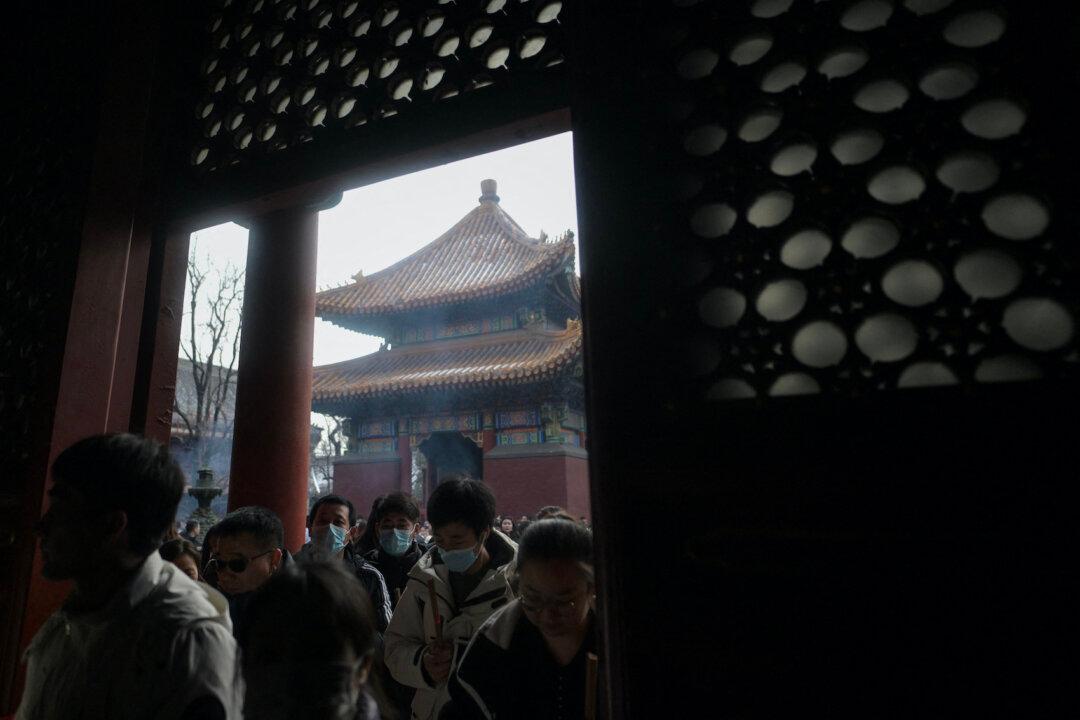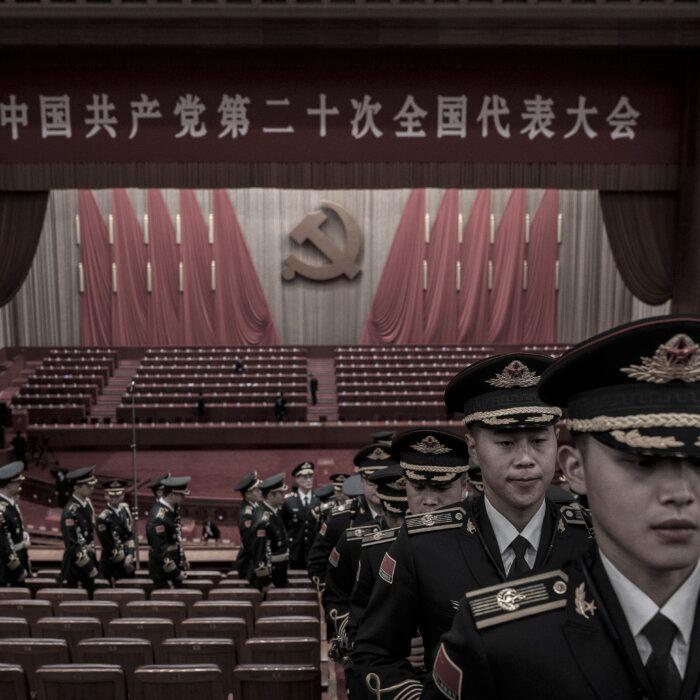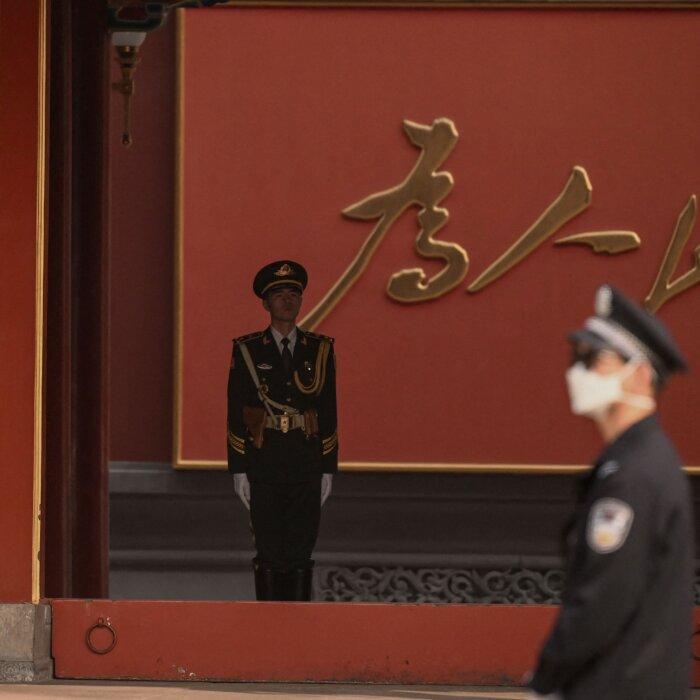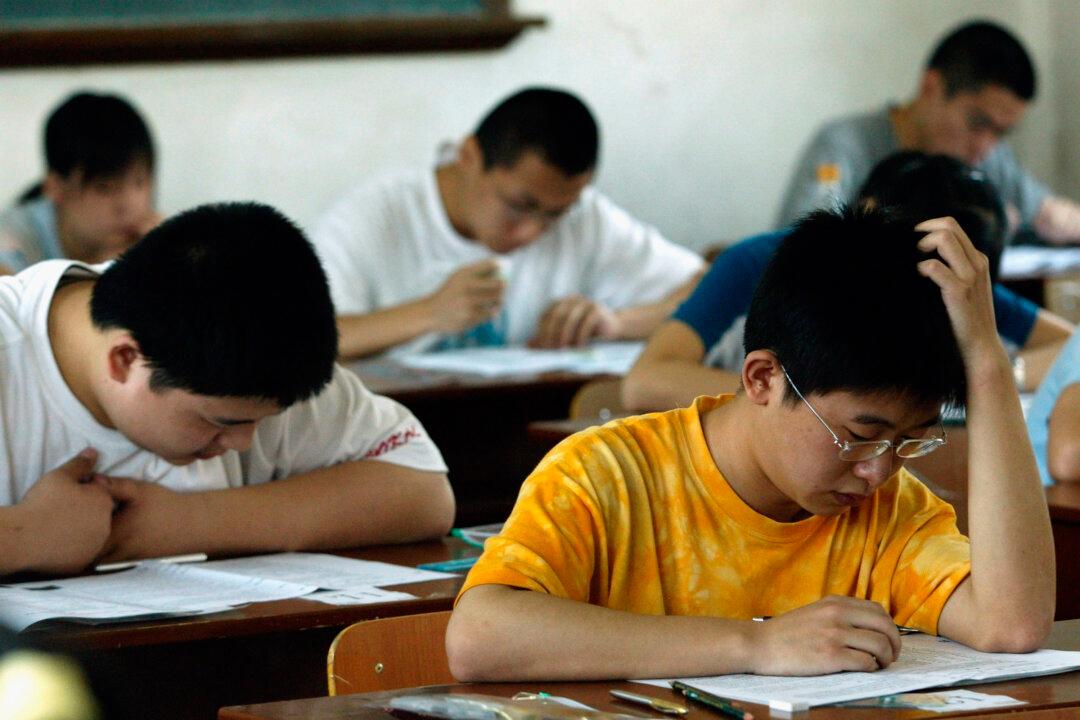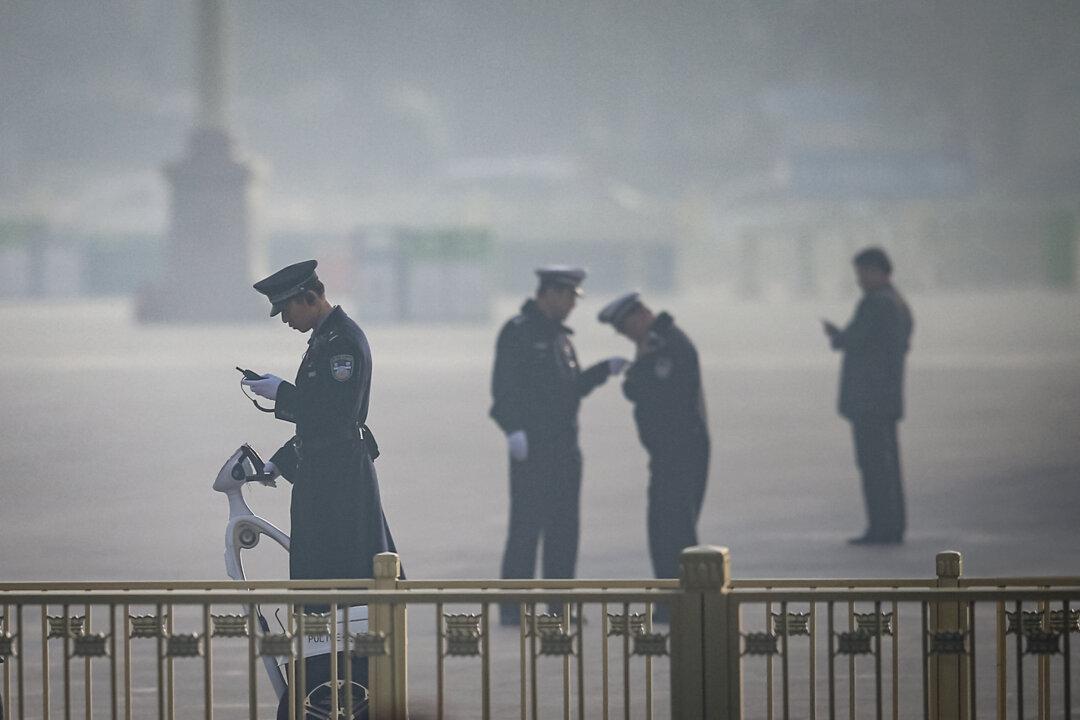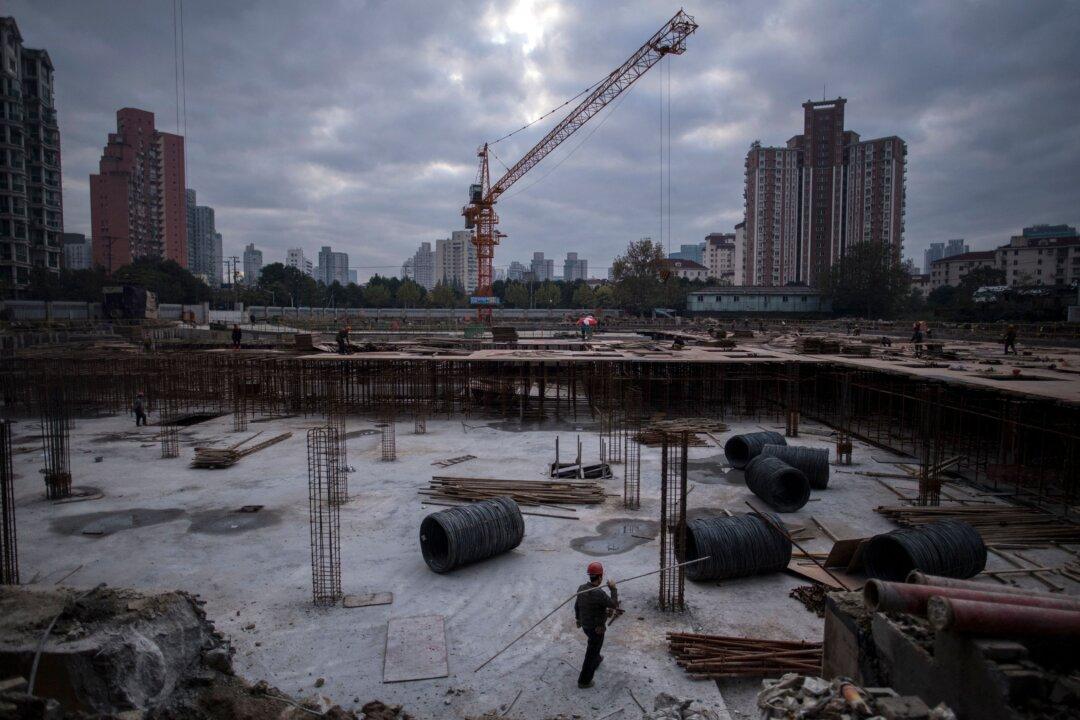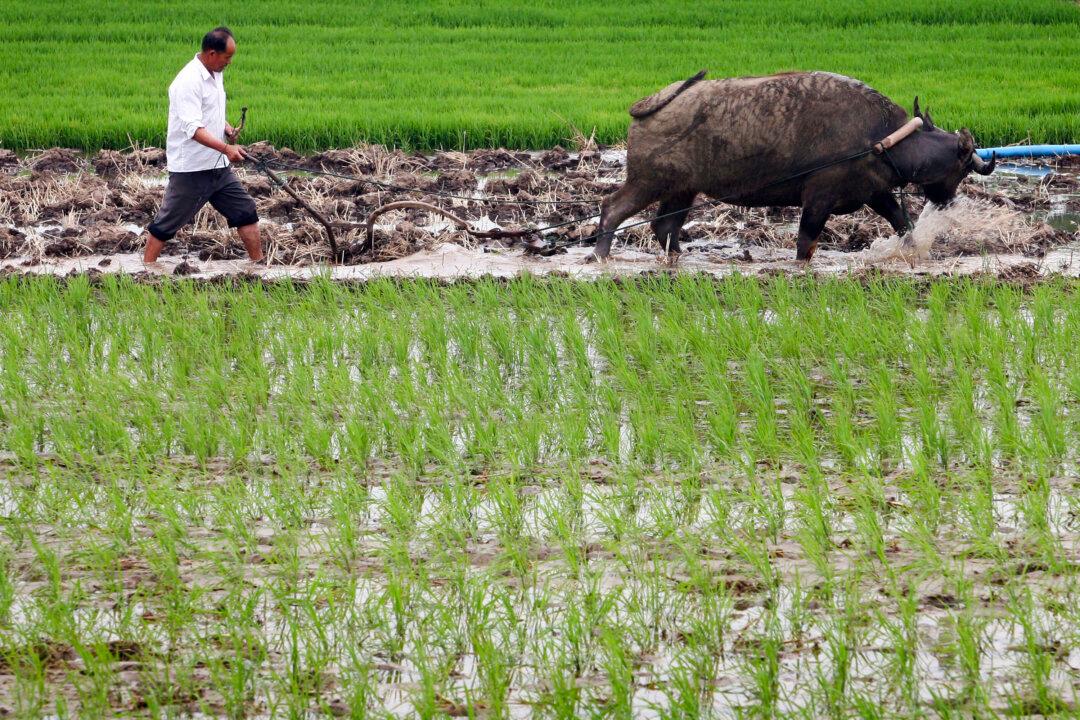On Feb. 7, a short video surfaced on the internet claiming that the Yonghe Temple in Beijing, commonly known as the Lama Temple among locals, was on fire, sparking heated discussions among netizens. Chinese people believe that a building symbolic of imperial power catching fire as the Chinese New Year approached was an omen for the country’s fate in the near future.
Although the authorities quickly dismissed it as a rumor, saying it was just a fire drill, the public generally expressed disbelief. It doesn’t make sense that a fire drill would create such a large plume of smoke in such an important cultural heritage landmark.
Jiang Feng, a renowned commentator with 1.12 million followers on his YouTube channel, unraveled the history of the Yonghe Temple, which actually originated from a fire that broke out during the Qing Dynasty.
At a recent episode of NTD TV’s Pinnacle View program, Mr. Jiang said that the Yonghe Temple is related to Emperor Yongzheng, who reigned from 1722 to 1735.
“Before becoming the emperor, he was a devout follower of Tibetan Buddhism. After ascending to the throne, he transformed the front part of his princely residence into an upper monastery for Tibetan Buddhism, while retaining the back part as his palace,” Mr. Jiang said.
“Later, a major fire destroyed the palace, leaving only the structure framework. Consequently, the site was completely converted into what is now known as the Yonghe Temple. Therefore, the history of Yonghe Temple is indeed related to a fire.”
Mr. Jiang believed that the fire was a divine warning to Emperor Yongzheng, implying that one’s religious faith and his secular role as a ruler should be kept separate.
“You cannot have half of it as a Tibetan Buddhist monastery and the other half as a royal palace, indulging in worldly pleasures of wealth and status; these should not be mixed,” Mr. Jiang said.
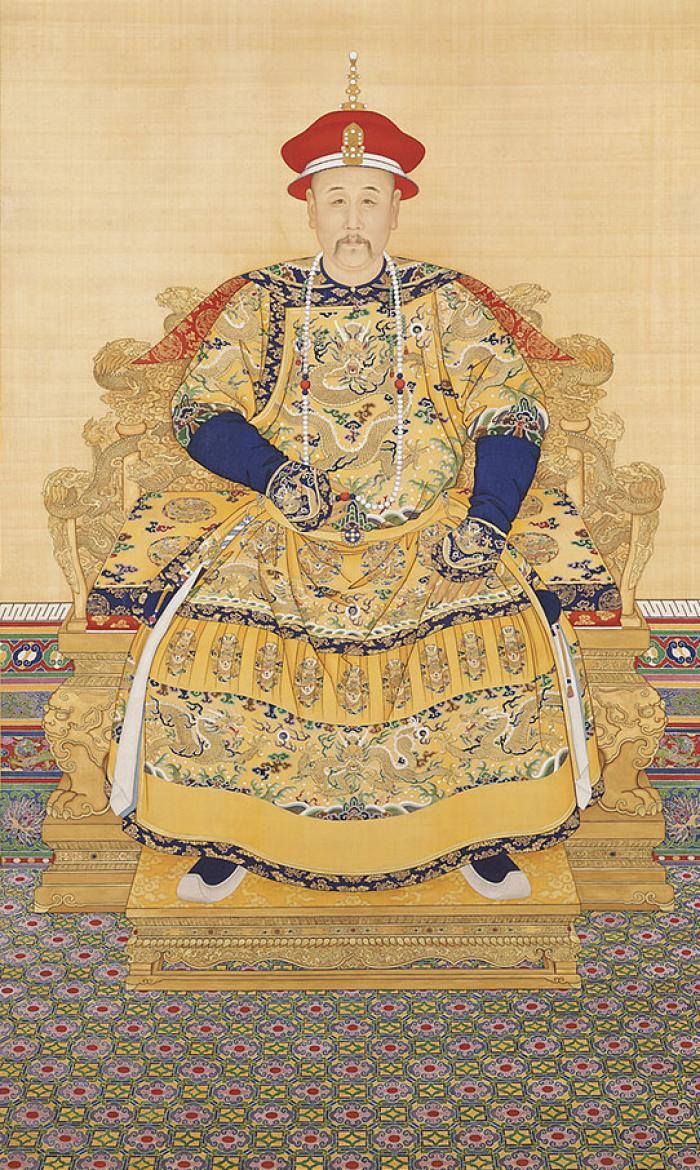
“Westerners are familiar with the saying, ‘Render unto Caesar the things that are Caesar’s, and unto God the things that are God’s,’ which suggests that such a combination is improper, and so it was destroyed by fire. I believe Emperor Yongzheng, being a religious man, understood the meaning of this warning.
Xi Jinping’s Family and Tibetan Buddhism
The Yonghe Temple houses statues of Tibetan Buddhism, and the family of Chinese Communist Party (CCP) leader Xi Jinping has deep ties with Tibetan Buddhism, Mr. Jiang said.Xi Jinping’s father, Xi Zhongxun, served as the second-ranking party chief of the Chinese Communist Party’s Northwest Bureau in the 1950s. His governance in the Northwest was actually best known for his expertise in united front work, and he had particularly good relations with Tibetan Buddhism and the lamas.
In 1989, when the Panchen Lama, who was living in Beijing, insisted on returning to Tibet to preside over a consecration ceremony, Xi Zhongxun tried his best to prevent the Panchen Lama from returning.
The Panchen Lama arrived in Tibet on Jan. 9, 1989, and presided over a consecration ceremony at Tashi Lhunpo Monastery on Jan. 22.
During his stay, he held a symposium with representatives from various provinces on Jan. 23. According to official reports, he criticized the CCP’s Tibet policy during the symposium, saying that in the three decades that the CCP has ruled Tibet, the price Tibet has paid has outweighed the benefits of development.
He also said that some officials were repeating old mistakes, an apparent reference to the CCP authorities’ harsh crackdown on Tibetan protesters. Other sources reported that the Panchen Lama had spoken about the Dalai Lama the day before his death, saying that both he and the Dalai Lama were disciples of Tsongkhapa and that he missed the Dalai Lama.
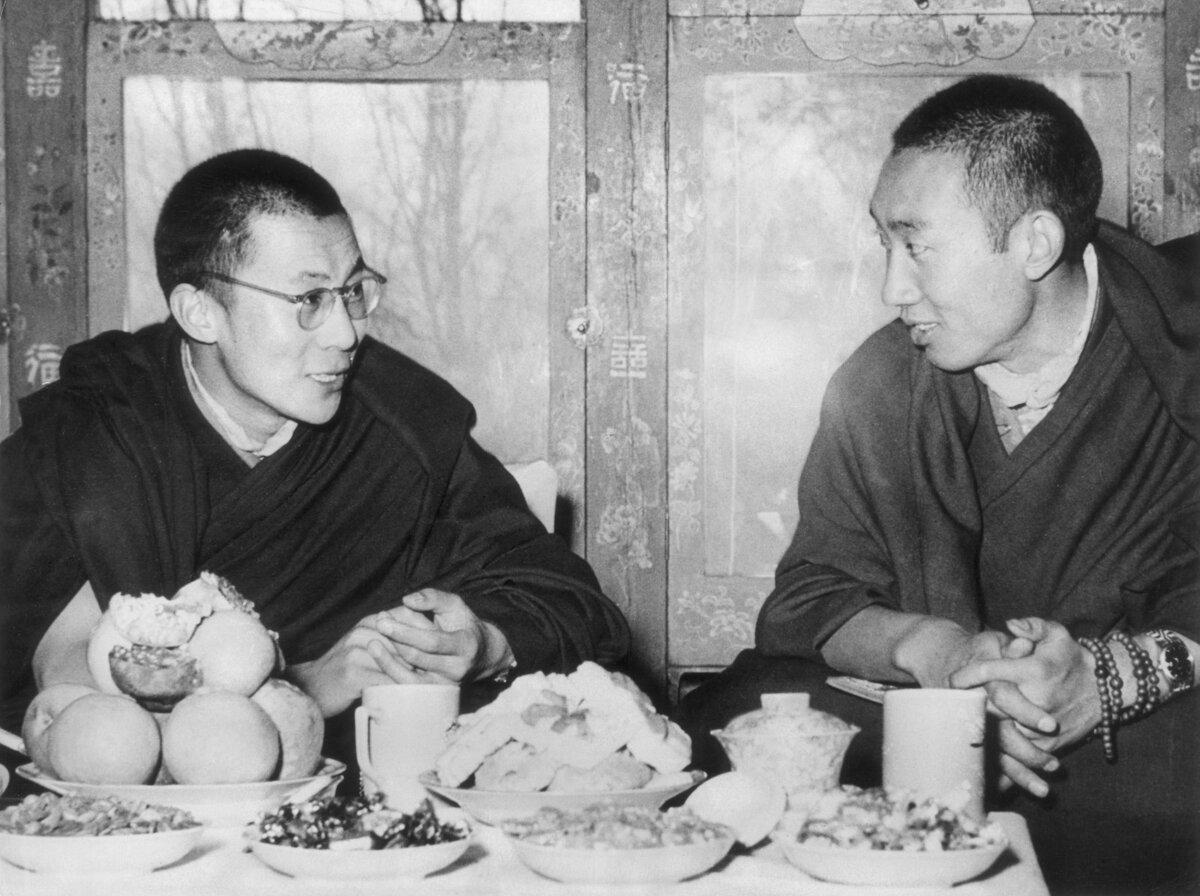
Five days later, he died of a sudden heart attack. Many Chinese dissidents believe it was a political assassination, and so does Mr. Jiang.
“The CCP was afraid that the Panchen Lama would seek autonomy in Tibet, so the regime decided to murder him,” Mr. Jiang claimed. “Xi Zhongxun, as a high-ranking official, must have known it before the Panchen Lama’s departure, but he could not say so directly. So, he pleaded that the Panchen Lama should not go back,” he said.
“From this, the Xi family has deep ties to Buddhism, especially Tibetan Buddhism. According to a reliable source, to this day, Xi Jinping and his wife Peng Liyuan are regular visitors to the Yonghe Palace.”
Shi Shan, senior writer and contributor to the Chinese edition of The Epoch Times, told the show that he had also heard a lot about Xi Zhongxun’s special tie with Tibetan lamas.
Prophecy Indicates Major Events in 2024
Guo Jun, The Epoch Times’ Hong Kong edition editor-in-chief, discussed the Tui Bei Tu prophecy, which dates back to the Tang Dynasty (618–907), during the program.Tui Bei Tu, also known as the Back-Pushing Diagram, was compiled by astrologers Li Chunfeng and Yuan Tiangang.
The 43rd image from the Tui Bei Tu says:
The ruler is not a ruler in the usual sense, and his ministers are not ministers in the usual sense either.
Beginning with hardships and dangers, ending in overcoming and settling.
The verse accompanying the image says:
The black rabbit enters the lair of the green dragon, I would like to say something, but I just can’t. Only on the roots of the tree outside, In 30 years, descendants will form a connection.
In the Chinese calendrical system, the transition from the Year of the Black Rabbit to the Year of the Green Dragon occurs once every 60 years. The transition of 2023 to 2024 happens to be a transition of “Black Rabbit to Green Dragon,” Ms. Guo said.
According to Ms. Guo, the sentence “I would like to say something, but I can’t” implied that some significant events would take place, but the authors treated them as a heavenly secret that could not be revealed. They could only give a hint that some historical events are about to take place this year.
Many people interpret “the roots of the tree outside” as overseas Chinese, including those living in Hong Kong and Taiwan.
“The last sentence of the verse is quite intriguing. It basically means that after 30 years, the Chinese who have fled mainland China have finally got a ‘result’. There is a lot of discussion about this, with many speculating that some major events may unfold regarding Taiwan and Hong Kong,” Ms. Guo said.
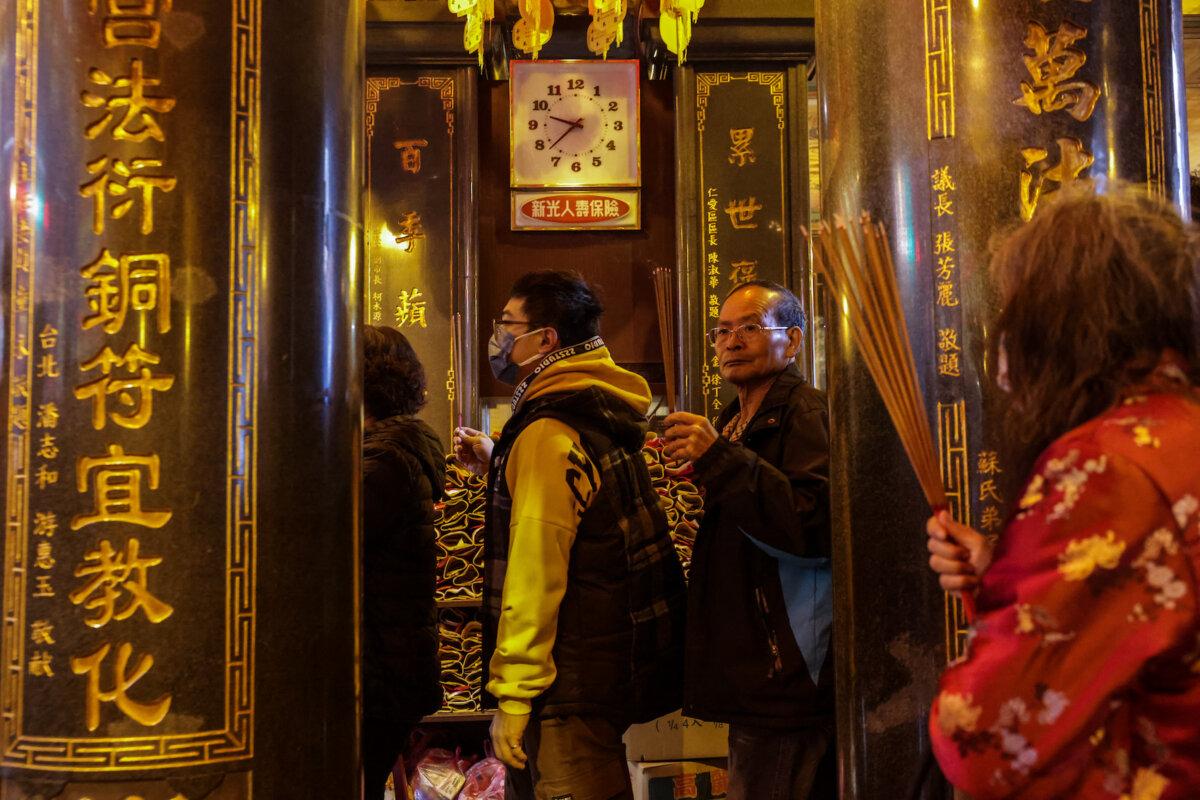
Words of Advice
Li Jun, a Chinese independent TV producer, said on Pinnacle View that he wishes all the viewers a safe journey through a year that is full of uncertainties.“In 2024, I would like to give the audience four words of advice, the first one is to get over the challenges that test our limit, the second one is to hold on to kindness, the third one is to be safe in the Year of the Dragon, and the fourth one is to embrace change,” he said.
Mr. Li believes that 2024 is likely to be the toughest year for everyone—the climate is likely to be very cold and humid, virus outbreaks will surge again, and the economy is on the verge of collapse.
“Therefore, my first advice is to maintain good health and survive the limitations,” he said.
“The second is to keep kind thoughts. Traditional Chinese culture emphasizes Tao and various techniques, with techniques at a lower level than the Tao. Many methods of healing belong to the category of techniques, but it’s not enough. Speaking of the Tao, you have to have the protection of the divine, and the divine protects those who have good hearts, who are good people. So, keeping good thoughts is very important.
“Thirdly, I wish everyone peace in the Year of the Dragon. In fact, we don’t aspire to get rich this year, but the most important thing is to have peace and security. There is a suggestion on the internet called the four no’s: don’t buy fixed assets, don’t invest, don’t borrow money, don’t start a business or expand a business. So peace in the Year of the Dragon is a conservative approach, a conservative way of living.
“The fourth is to embrace change. As the Chinese saying goes, when we get to the extreme, we have reached a turning point, and it is likely that by the end of 2024 or 2025, there will be changes in society, and we should embrace and welcome a new era with a positive attitude.”
